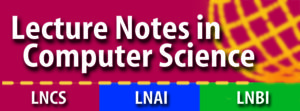[vc_row][vc_column][vc_cta h2=”Scope”]Service-oriented and cloud computing have made a huge impact both on the software industry and on the research community. Today, service and cloud technologies are applied to build large-scale software landscapes as well as to provide single software services to end-users. Services today are independently developed and deployed as well as freely composed while they can be implemented in a variety of technologies, a quite important fact from a business perspective. Similarly, cloud computing aims at enabling flexibility by offering a centralized sharing of resources. The industry’s need for agile and flexible software and IT systems has made cloud computing the dominating paradigm for provisioning computational resources in a scalable, on-demand fashion. Nevertheless, service developers, providers, and integrators still need to create methods, tools and techniques to support cost-effective and secure development as well as the use of dependable devices, platforms, services and service-oriented applications in the cloud.
The European Conference on Service-Oriented and Cloud Computing (ESOCC) is the premier conference on advances in the state of the art and practice of service-oriented computing and cloud computing in Europe. The main objectives of this conference are to facilitate the exchange between researchers and practitioners in the areas of service-oriented computing and cloud computing, as well as to explore the new trends in those areas and foster future collaborations in Europe and beyond.[/vc_cta][vc_cta h2=”Topics of Interest” shape=”square” css_animation=”fadeIn” css=”.vc_custom_1567610498769{background-color: #ffffff !important;}”]ESOCC 2020 seeks original, high quality papers related to all aspects of service-oriented and cloud computing. Specific topics of interest include but are not limited to:[/vc_cta][vc_row_inner][vc_column_inner][accordion_father][accordion_son title=”Service and Cloud Computing Models”]* Design patterns, guidelines and methodologies
* Governance models
* Architectural models
* Requirements engineering
* Formal Methods
* Model-Driven Engineering
* Quality models
* Security, Privacy & Trust models
* Self-Organizing Service-Oriented and Cloud Architectures Models
* Testing models[/accordion_son][accordion_son title=”Service and Cloud Computing Engineering”]* Service Discovery, Matchmaking, Negotiation and Selection
* Monitoring and Analytics
* Governance and management
* Cloud Interoperability, Multi-Cloud, Cross-Cloud, and Federated Cloud solutions
* Frameworks & Methods for Building Service and Cloud-based Applications
* Cross-layer adaptation
* Edge/Fog Computing
* Cloud, Service Orchestration & Management
* Service Level Agreement Management
* Service Evolution/Optimisation
* Service & Cloud Testing and Simulation
* QoS for Services and Clouds
* Semantic Web Services
* Service mining
* Service & Cloud Standards
* FaaS / Serverless computing[/accordion_son][accordion_son title=”Technologies”]* DevOps in the Cloud
* Containerized services
* Emerging Trends in Storage, Computation and Network Clouds
* Microservices Deployment and Management
* Next Generation Services Middleware and Service Repositories
* RESTful Clouds and Services
* Service and Cloud Middleware & Platforms
* Blockchain for Services & Clouds
* Services and Clouds with IoT
* Fog Computing with Service and Cloud[/accordion_son][accordion_son title=”Business and Social Aspects”]* Enterprise Architectures for Service and Cloud
* Service-based Workflow Deployment & Life-cycle Management
* Core Applications, e.g., Big Data, Commerce, Energy, Finance, Health, Scientific Computing, Smart Cities
* Business Process as a Service – BPaaS
* Service and Cloud Business Models
* Service and Cloud Brokerage
* Service and Cloud Marketplaces
* Service and Cloud Cost & Pricing
* Crowdsourcing Business Services
* Social and Crowd-based Cloud
* Energy issues in Cloud Computing
* Sustainability issues[/accordion_son][/accordion_father][/vc_column_inner][/vc_row_inner][/vc_column][/vc_row][vc_row][vc_column width=”3/5″][vc_cta h2=”Submissions”]We only accept original papers, not submitted for publication elsewhere. Two kinds of papers are allowed:
– full papers covering complete research work; these should be 15 pages long including references
– short papers covering work-in-progress; these should be 8 pages long including references.
The papers must be formatted according to the LNCS proceedings guidelines. They must be submitted to the EasyChair site at: https://easychair.org/conferences/?conf=esocc2020
All accepted papers of the main conference will be included in the conference proceedings published by Springer Verlag in the Lecture Notes in Computer Science (LNCS) series (http://www.springer.com/lncs). Upon request, accepted papers can be offered in open-access form.
At least one author of each accepted paper is expected to register and present it at the conference.[/vc_cta][/vc_column][vc_column width=”2/5″][vc_cta h2=”Important Dates”]- Paper submission: 20 January, 2020
– Notification: 10 February, 2020
– Camera ready: 17 February, 2020[/vc_cta][/vc_column][/vc_row]
